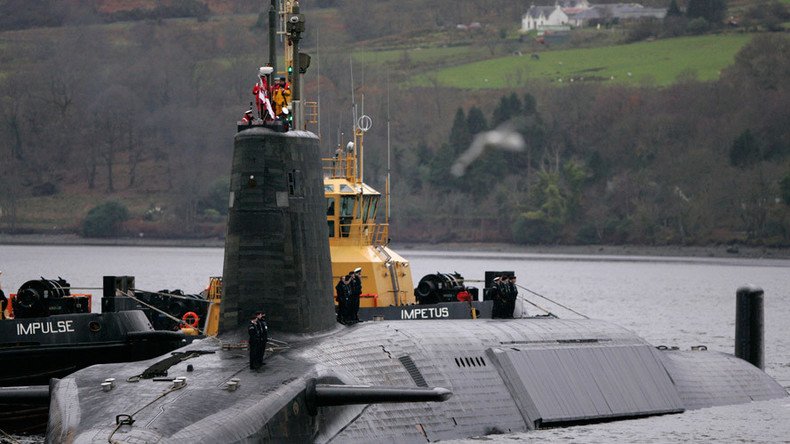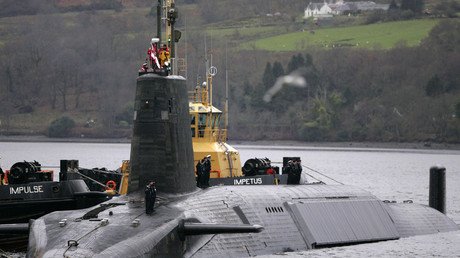Trident renewal vote must wait until after EU referendum, says Cameron

Prime Minister David Cameron intends to delay the vote on renewing Britain’s Trident nuclear weapons system until after the EU referendum in order to build a consensus.
The vote on the controversial multi-billion pound nuclear weapons renewal was intended to take place in March but may now be delayed until late July.
The shift in dates is to avoid the £31 billion (US$45 billion) Successor renewal program interfering with the referendum. It is also rumored that the government wants time to exploit the Labour Party’s internal divisions over nuclear weapons.
While Labour leader Jeremy Corbyn and Shadow Defence Secretary Emily Thornberry wish to see nuclear weapons done away with, the Blairite faction within Labour are determined to maintain the system.
During a meeting of MPs on Tuesday, Thornberry was attacked by pro-nuke MPs as she showcased the party’s latest options on whether or not to renew Trident.
During the meeting John Cryer, chairman of the Parliamentary Labour Party (PLP), reportedly paused the session as a result of frequent interruptions.
Thornberry’s speech was described as “waffly,” “patronizing” and “the worst presentation I have ever seen,” by pro-Trident MPs, according to the Times.
She argued that technology might be advancing at such a rate that the new generation of submarines would be obsolete by the time they came into being.
“The idea of the Trident replacement is that they are able to hide in the seas. If technology is moving faster, it may well be that Trident is not going to be able to hide,” she said.
“If we are to bet everything on mutually assured destruction we have to be assured it is going to work. If it cannot hide any more, that is a problem,” she added.
The Unison and GMB trade unions are also skeptical of abandoning Trident on the grounds that workers they represent are employed in the nuclear and submarine building industries.
If the vote goes Cameron’s way, the replacement submarines would come into service in the early 2030s, continuing the long-standing UK policy of a permanent at-sea deterrent.














